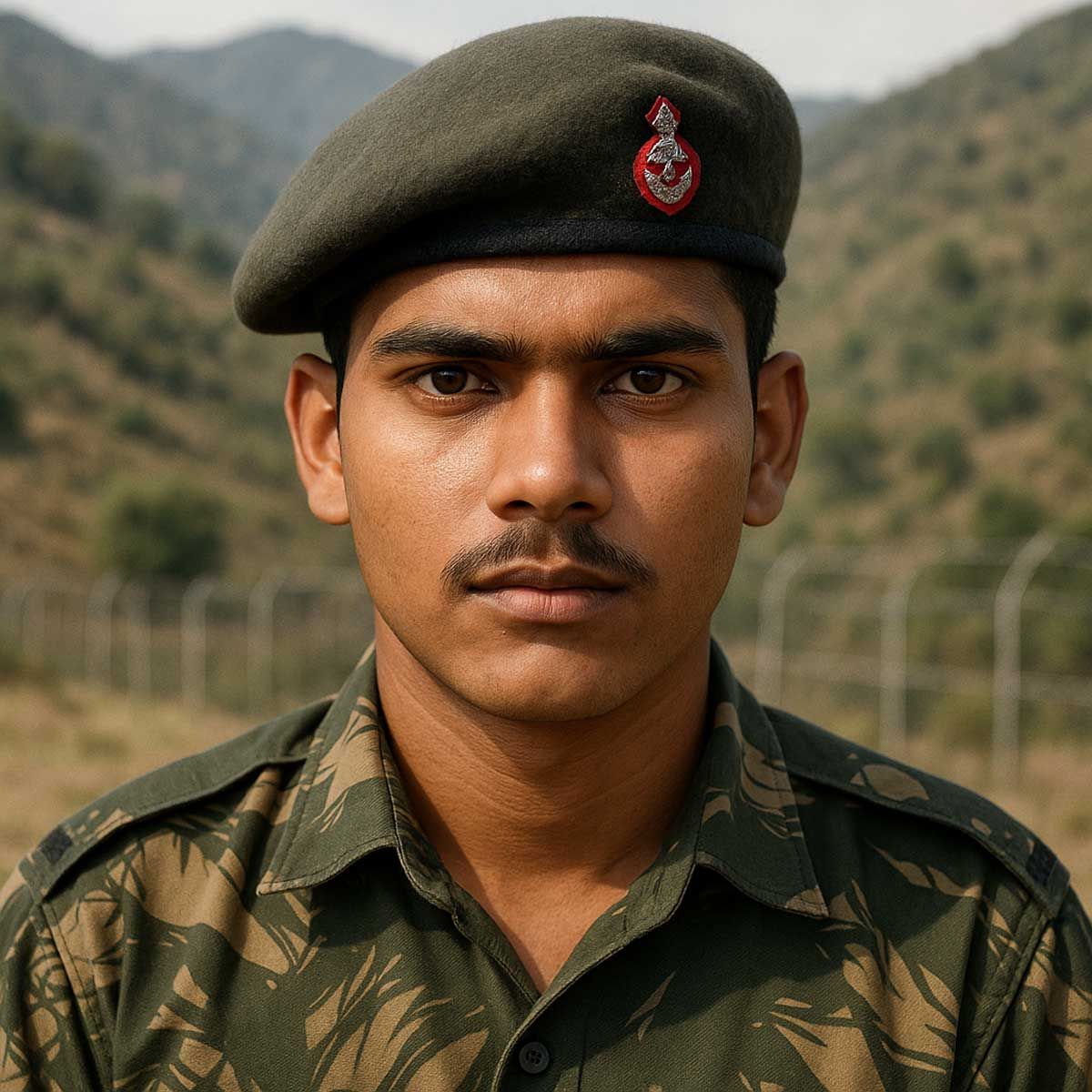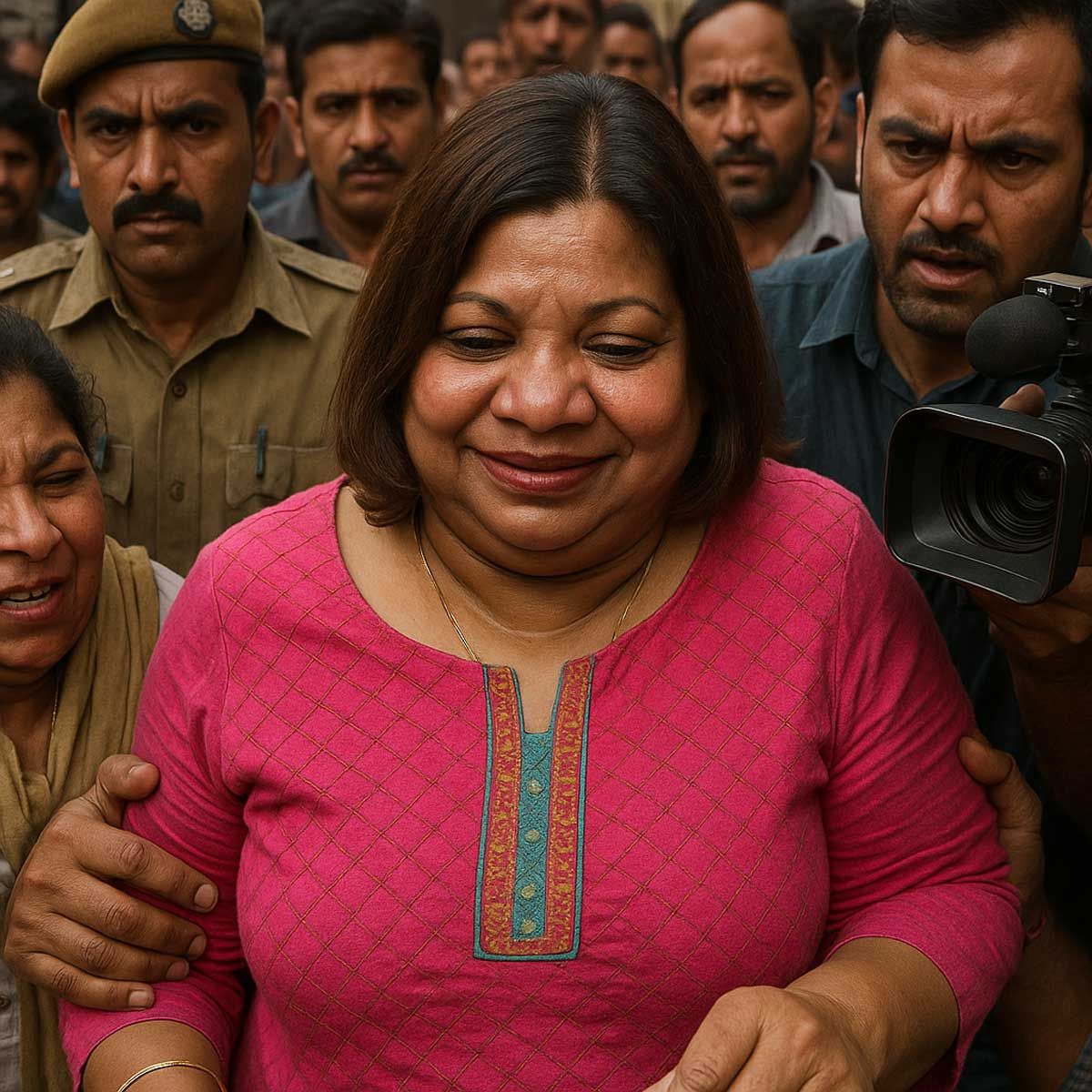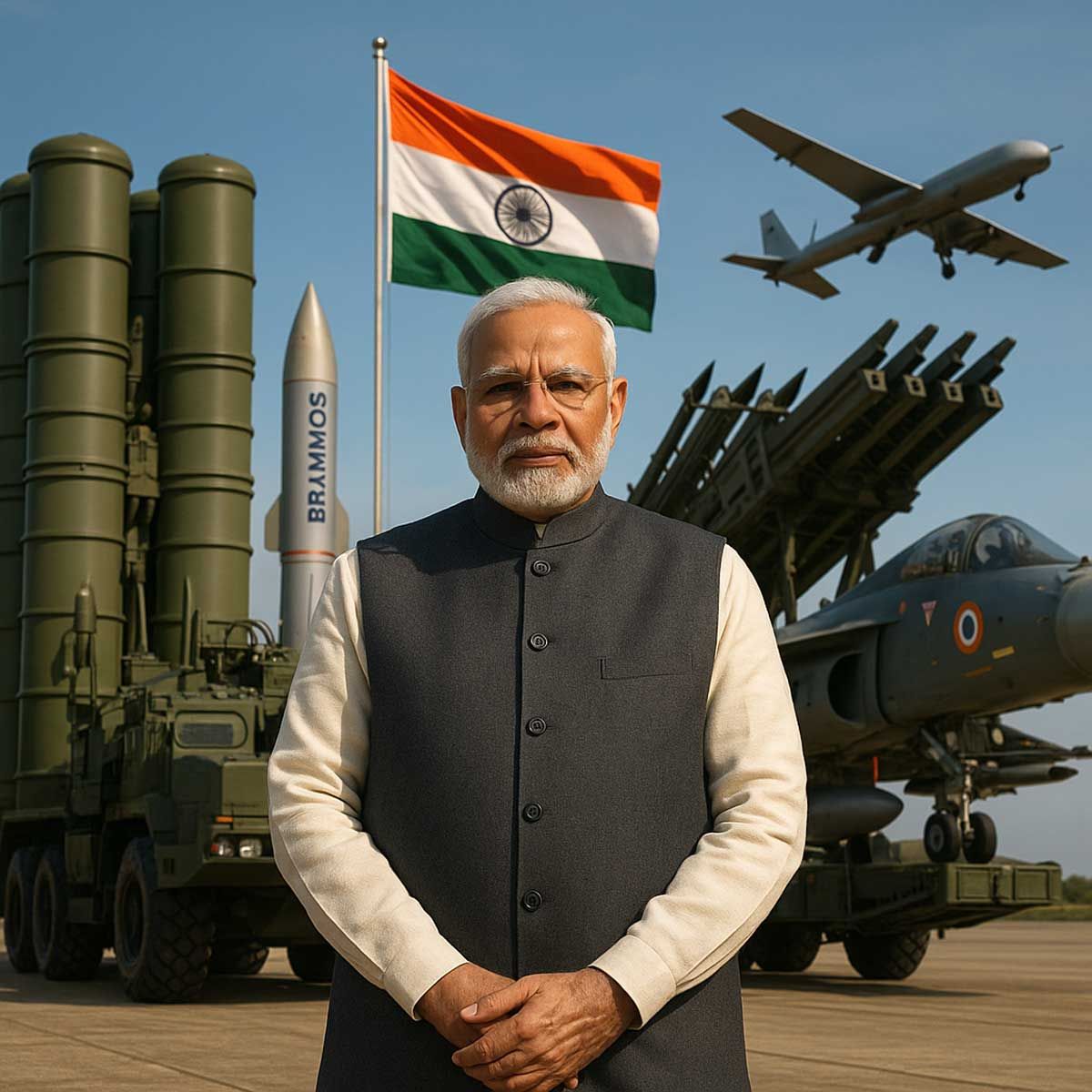More Coverage
Twitter Coverage
Satyaagrah
Written on
Satyaagrah
Written on
Satyaagrah
Written on
Satyaagrah
Written on
Satyaagrah
Written on
JOIN SATYAAGRAH SOCIAL MEDIA
Bajrang Punia's Olympic hopes tumble spectacularly after a swift defeat & a ninja escape from dope test, igniting uproar over his shortcut dreams, amidst junior wrestlers' loud calls for fairness & a shot at glory through hard-earned, sweat-soaked trials
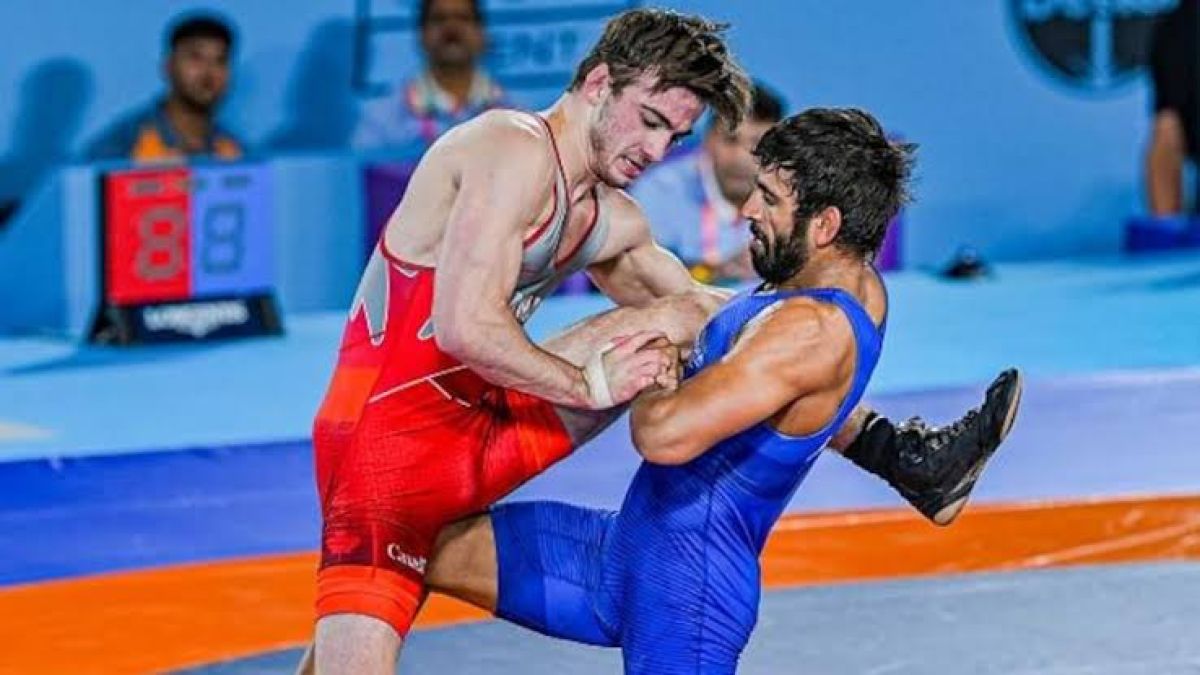
In a surprising turn of events on a chilly Sunday, the 10th of March, the wrestling community watched as Bajrang Punia, once a vociferous leader of the wrestlers' protest, faced a startling setback. The wrestler, known for his bold move into protest politics with aspirations of an effortless leap into the Olympics, found himself on the losing end in the race to qualify for the Paris Olympics. During the selection trials that are crucial for deciding the athletes representing at upcoming international meets, Punia's hopes were dashed.
|
Bajrang Punia, who last year stood at the forefront of the wrestlers' protest, became the center of attention for a different reason. His journey in the selection trials was abruptly halted. Punia, competing in the men’s freestyle 65kg category, encountered a formidable opponent in Rohit Kumar. The face-off was nothing short of a reality check for Punia as he succumbed to a significant 1-9 loss in the semifinal bout. This defeat highlighted not only the unpredictability of sports but also served as a sharp satire on Punia’s earlier aspirations for direct Olympic entry without facing the rigors of qualification.
Adding to the narrative of his challenging day, Punia's performance in the initial bout of the trials barely kept his Olympic dreams alive. He faced Ravinder, managing a narrow victory based on technical criteria after the match ended in a 3-3 tie, courtesy of a caution point conceded by Ravinder. This victory, however, was short-lived as Rohit Kumar's prowess in the semifinal bout left Punia and his Olympic aspirations in the dust.
In a recent twist of events that seemed more suited to a sprint than a wrestling match, Bajrang Punia made a quick exit from the Sports Authority of India (SAI) Centre following his elimination. According to reports, the National Anti-Doping Agency (NADA) officials tried to collect the sample for a dope test but the wrestler did not stay back even for a third-fourth place bout. This maneuver might have been Punia’s fastest move yet, albeit off the mat, raising more than a few eyebrows and perhaps even a chuckle or two among those who've been following his foray into protest politics with an eye for the dramatic.
The selection trials, overseen by the IOA ad-hoc panel, are no small affair, serving as the battleground for athletes' dreams of Olympic glory. Punia, in preparation for these trials, ventured all the way to Russia, likely in hopes that a bit of international flair would translate into domestic success. Yet, despite the overseas training stint, his performance back home seemed to rush towards an unexpected climax, leaving spectators and officials alike in a bit of a plot twist.
|
Meanwhile, the men’s 57kg category unfolded with the intensity of a classic sports rivalry. Held in the demanding Nordic format, this category was the scene of a fierce contest between Tokyo Games silver medallist Ravi Dahiya and the rising sensation Aman Sehrawat. Both wrestlers, aiming for the top spot, showcased the kind of commitment and resilience that sports narratives thrive on. Notably, Dahiya, who was also part of the Wrestlers’ protest for a brief period, made a comeback from an injury. He lost the high-scoring opening bout to Aman with a scoreline of 13-14. Their training at the esteemed Chhatarsal Stadium evidently prepared them for a high-stakes battle, underscoring the dedication required to compete at this level.
As the drama of the Paris Olympics selection trials unfolds, the narrative took a particularly satirical turn with Bajrang Punia's swift exit from the competition and subsequent actions. After his earlier departure post-defeat, attention now shifts to the larger picture of the trials and the contrasting fortunes of other wrestlers.
Aman Sehrawat, in the absence of Ravi Dahiya, emerged as a formidable force within the wrestling circuit. Throughout 2023, Aman's ascendancy was marked by a series of victories, practically dominating the scene and setting the stage for his continued prominence in the trials. Meanwhile, Ravi Dahiya, a seasoned competitor and Tokyo Games silver medallist, faced elimination after a defeat to U20 Asian champion Udit, marking a significant turn in the competition dynamics.
The stakes at these trials couldn't be higher, with the winners earning the chance to represent at the Asian and World Olympic Qualifiers. So far, India's hopes for additional Olympic berths hang in the balance, with only Antim Panghal securing a quota in the women’s 53kg category for the Paris Games.
In an intriguing twist of fate, Bajrang Punia's quest for Olympic glory came to an abrupt end, overshadowed by a resounding defeat to the younger talent, Rohit Kumar, in a match that concluded with a stark 9-1 scoreline. This outcome only fueled the satire surrounding Punia's previous insistence on a direct Olympic entry, bypassing the traditional and merit-based selection trials. Critics and spectators alike couldn't help but draw parallels between his engagement in protest politics, notably under the banner of #metoo allegations, and his preparation—or perceived lack thereof—for the trials. The notion that Punia, among others, sought an unearned passage to the Olympics has been a subject of contentious debate, highlighting a perceived detachment from the dedication required of an athlete.
Adding a personal twist to the saga, Punia's wife's social media post during the wrestlers' protest - "we will crush you Modi, don't live in delusion" - resurfaces as a poignant reminder of the complex interplay between sports, politics, and personal convictions. This statement, set against the backdrop of Punia's failure to qualify for the Olympics and juxtaposed with Modi's anticipated political success, encapsulates the broader discourse of aspiration, ambition, and the sometimes harsh realities of both sports and life.
As the wrestling community and fans reflect on these developments, the story of Bajrang Punia serves as a compelling narrative of ambition, controversy, and the harsh spotlight of public scrutiny. While the trials continue and athletes vie for their chance at Olympic glory, Punia's journey remains a cautionary tale of the unpredictable nature of sports and the indelible impact of actions both on and off the mat.
|
|
Wrestler Protest: The Long Wrestle with Governance
In the annals of sports dramas, the saga involving rebel wrestlers like Sakshi Malik, Vinesh Phogat, and Bajrang Punia would undoubtedly merit its own chapter. These athletes, not content with battling opponents on the mat, took on the Wrestling Federation of India (WFI) and its former Chief, Brij Bhushan Sharan Sharma, in a contest of wills and principles. Their grievance? Allegations of sexual harassment that cast a long shadow over the sport's governance. The twist? Their protest didn't fizzle out even after Sharma's tenure as the WFI president ended. It seems that in the world of wrestling, the fight for justice knows no bell.
But the plot thickens. After what can only be described as the briefest of intermissions, our intrepid wrestlers were back at it. This time, they grappled with the outcome of fresh court-monitored elections, a move that was supposed to clean the slate but instead smeared it with more controversy. The result? An unprecedented suspension of the wrestling body itself.
|
|
Through these episodes, our rebel wrestlers have shown that they can throw down as fiercely outside the ring as they do inside it. However, it's hard not to note the irony in their ongoing battle. These athletes, who have trained tirelessly to pin down their opponents, find themselves in a seemingly endless match against the very institutions meant to support them.
In the shadow of the senior wrestlers' protest, a significant yet often overlooked narrative unfolded at Jantar Mantar on the 3rd of January this year. Hundreds of junior wrestlers, the future of the sport in India, came together not to join the chorus of demands for reform but to voice their frustration over a year lost. Their grievance was not with the Wrestling Federation of India, but rather with the very athletes they once looked up to: Sakshi Malik, Vinesh Phogat, and Bajrang Punia.
These young wrestlers, whose dreams and careers hinge on every match, every trial, accused the protesting trio of hijacking a year of their lives, a year that could have been spent competing, learning, and growing. Amidst the slogans and chants, a critical message was clear: the actions of a few can have far-reaching consequences on many.
The protest at Jantar Mantar was more than just an expression of discontent; it was a poignant reminder of the stakes involved. For junior wrestlers like Antim Panghal, the path to representing India on the world stage is one that should be paved with merit, determined by performance in the ring, not by exemptions or protests. Their demand is simple yet profound: let trials decide who the best wrestlers are, ensuring a fair and transparent selection process.
This episode serves as a sobering counterpoint to the ongoing saga of the senior wrestlers' protest. While the concerns and demands of Malik, Phogat, and Punia stem from serious allegations and seek systemic changes within the wrestling federation, the junior wrestlers' plea highlights the collateral damage of such protests. The year lost to these young athletes represents missed opportunities, stunted growth, and the harsh reality of a sport in turmoil.
As we navigate the complexities of these intertwined narratives, it's crucial to remember the aspirations of these junior wrestlers. Their voices, though drowned out by the louder, more visible protests, are a stark reminder of the broader implications of this conflict. In the world of wrestling, where every point counts, the future of the sport lies not just in addressing the grievances of the present but in safeguarding the dreams and careers of those waiting in the wings.
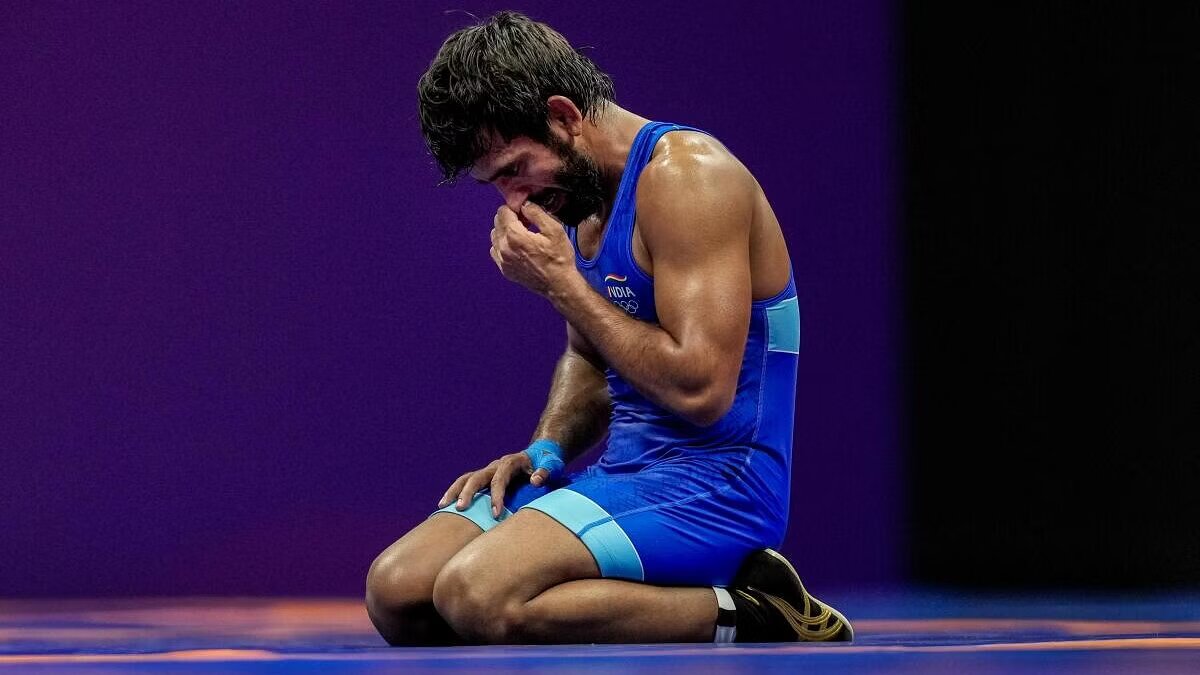 |
 Support Us
Support Us
Satyagraha was born from the heart of our land, with an undying aim to unveil the true essence of Bharat. It seeks to illuminate the hidden tales of our valiant freedom fighters and the rich chronicles that haven't yet sung their complete melody in the mainstream.
While platforms like NDTV and 'The Wire' effortlessly garner funds under the banner of safeguarding democracy, we at Satyagraha walk a different path. Our strength and resonance come from you. In this journey to weave a stronger Bharat, every little contribution amplifies our voice. Let's come together, contribute as you can, and champion the true spirit of our nation.
 |  |  |
| ICICI Bank of Satyaagrah | Razorpay Bank of Satyaagrah | PayPal Bank of Satyaagrah - For International Payments |
If all above doesn't work, then try the LINK below:
Please share the article on other platforms
DISCLAIMER: The author is solely responsible for the views expressed in this article. The author carries the responsibility for citing and/or licensing of images utilized within the text. The website also frequently uses non-commercial images for representational purposes only in line with the article. We are not responsible for the authenticity of such images. If some images have a copyright issue, we request the person/entity to contact us at satyaagrahindia@gmail.com and we will take the necessary actions to resolve the issue.
Related Articles
- 'Cricketers who married cousins' story published by Times of India included Virender Sehwag and his wife Aarti Ahlawat, who are actually not cousins - Also used the couple as the cover photo, completely misrepresenting facts
- Mohammedan man taken prisoner for grooming and holding hostage a 15-year-old Hindu girl, claimed “We are in love for 7 years”: Kasganj, UP
- How order of Supreme Court Allowing Non-Hindus To Own Shops In Hindu Institutions can be challenged
- Pakistan’s ISI and Sikh For Justice has activated its terror outfits to derail the Punjab election, thinks it is ‘now or never’ opportunity for Khalistani Movement: Intelligence agencies issues warning
- So-called atheist civilizing Hindu, a Periyarist cum Dravidian Stockist Youtuber denigrated Bhagwan Shiva and made obscene remarks about the cosmic dance of Nataraja claiming that it is the Sthal Puran of the temple
- Rahul Gandhi schooled by Externals Affair Minister Dr. S Jaishankar of history lessons and is condemned by Law Minister Kiren Rijiju for his remarks on the judiciary and Election Commission
- Delhi Police Commissioner rubbished social media claims that saffron flags were hoisted atop a Jahangirpuri mosque, attempts of whitewashing the perpetrators by 'liberal cabal' and Altnews co-founder falls flat
- "What a network": For a withheld tweet of Washington Post columnist Rana Ayyub, she gets support from several ‘journalists’, ‘activists’ and ‘prominent personalities’, people linked to George Soros and his funded Open Society stood out from crowd
- "साथी हाथ बढ़ाना": Indian government steps in with 40 ACs for athletes battling Paris's scorching heat at the Olympics, while Arjun Babuta criticizes Punjab's AAP government for failing to support sports, highlighting unmet promises and neglect
- "There's also no doubt that tax evasion rises along with taxes": BCCI confirmed the sale of media rights for IPL for a staggering Rs 48,390 crore, but despite high-stakes auctions to lucrative sponsorships, it is not subject to taxes, ITAT upheld the same
- "The person that said winning isn’t everything, never won anything": India’s Miracle Boy Neeraj Chopra scripts history as first Indian to win silver medal at World Athletics Championships in Eugene, Oregon, best throw was 88.13 meter
- India has strongly responded to the comments by foreign countries on Karnataka burqa row, ‘External forces with Motivated comments on our internal issues are not welcome'
- Manmohan Singh led-UPA Govt chose to be meek and mute while USA funded a dam project in PoK in 2011: UNPO noted that support was controversial as Gilgit Baltistan is an internationally recognised disputed territory
- 'Saffronization of historical research': When all Media outlets screamed the propagandist headline of new pall-bearer of secularism that ICHR was packed with “sympathizers" and claimed that authentic MoA of 1972 was changed from Rational to National
- Story of Hamid Dalwai, a man who started the triple talaq movement, and why it is impossible to reform Islam: Objects of criticism include the morality of the life of Muhammad, the founder of Islam















